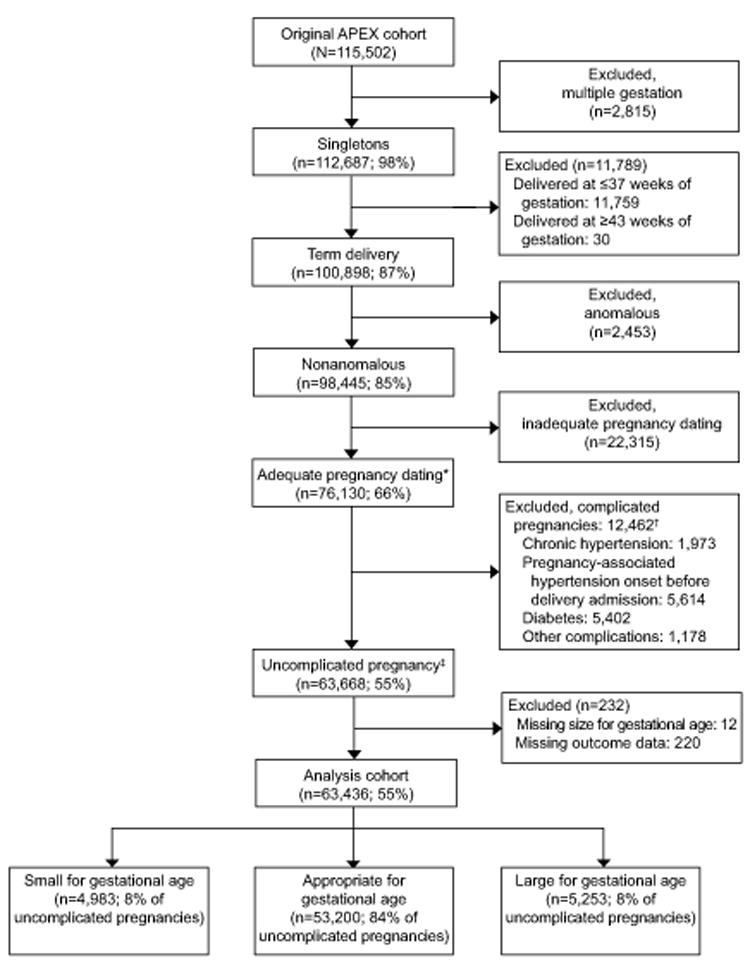Fig 1.

Analysis cohort inclusion. APEX, Assessment of Perinatal Excellence. *Adequate pregnancy dating was defined as a pregnancy dated by last menstrual period and first- or second-trimester ultrasonogram, first- or second-trimester ultrasonogram alone, or assisted reproductive technology. †Categories not mutually exclusive. ‡A pregnancy was considered complicated if the woman had any of the following: diabetes (pregestational or gestational), chronic hypertension, history of deep venous thrombus or pulmonary embolism, hypertensive disease of pregnancy (gestational hypertension or preeclampsia) with an onset before delivery hospital admission, thrombophilia excluding MTHFR, anticoagulant use, previa, or any of the following as a reason for delivery hospital admission: vaginal bleeding or abruption, deep venous thrombus, asthma exacerbation, seizures, or other nonobstetric maternal medical condition. In absence of these conditions, a woman was considered to have an uncomplicated pregnancy.
